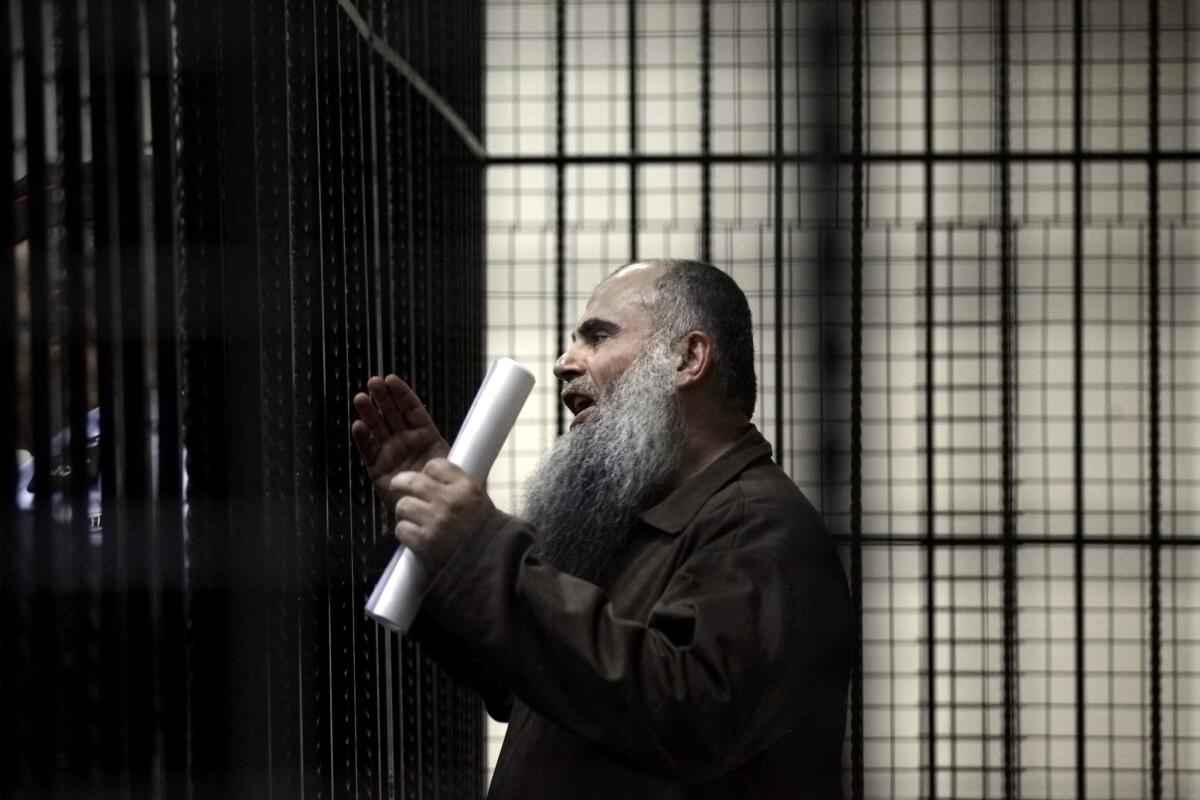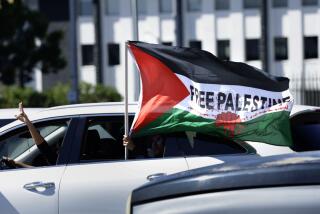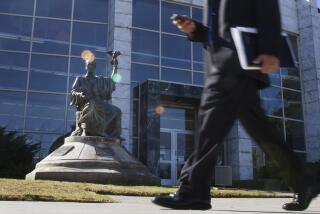Muslim cleric Abu Qatada acquitted of terror charges in Jordan

A Jordanian state security court on Wednesday threw out terrorism charges against radical Muslim cleric Abu Qatada, a onetime confidant of Osama bin Laden who had lately emerged as a critic of the Sunni extremists of the Islamic State.
The 53-year-old preacher, long known for his fiery denunciations of the West, had for years been at the center of a high-profile and protracted international legal tussle. In July, he was deported from Britain to Jordan, where he had previously been convicted in absentia on terror charges, but a new trial was ordered following his return.
Delirious shouts of “God is great” rang out in the courtroom as the judges’ decision was read. Hours later, the cleric received a tumultuous homecoming in the Amman neighborhood where his elderly mother still lives. Neighbors flung candies from balconies and women ululated in celebration, local journalists said.
The decision of the court, which convened at a military base outside Amman, came a day after Jordan began participating in U.S.-led airstrikes against the Islamic State at its Syrian stronghold of Raqaa. From detention, Abu Qatada had denounced the group, echoing Al Qaeda’s rejection of its brutal methods as too extreme.
As part of its overall strategy against the Islamic State, the Obama administration has urged Arab allies to recruit influential clerics to speak out against the group and its tactics. It was not clear whether there were hopes -- or even a tacit agreement -- that Abu Qatada would join in that effort.
Abu Qatada, whose real name is Omar Othman, had been accused of aiding a foiled plan by militants in Jordan to attack tourists and diplomats, targeting mainly Americans and Israelis, during celebrations of New Year 2000. It became known as the “millennium plot.”
The cleric had fled a Jordanian crackdown on militants in the early 1990s, arriving in Britain in 1993. Although he entered illegally, he was granted asylum. However, his rise to prominence in radical Islamic circles, and teachings that included religious edicts justifying suicide bombings, prompted British authorities to deem him a threat to national security.
British authorities were unable to deport Abu Qatada to Jordan because of torture concerns, but the two countries last year ratified a treaty that paved the way for his return. Under the treaty, evidence that might have been obtained through use of torture could not be used against him or other defendants extradited from Britain.
In Wednesday’s ruling, the court cited lack of evidence against Abu Qatada. He had been cleared in June of involvement in a second plot.
Britain’s Home Office did not comment directly on the court’s ruling, but said it was appropriate that he had faced legal proceedings in Jordan. It added that he would not be allowed to return to Britain.
Follow @laurakingLAT on Twitter for news out of the Middle East.
More to Read
Start your day right
Sign up for Essential California for news, features and recommendations from the L.A. Times and beyond in your inbox six days a week.
You may occasionally receive promotional content from the Los Angeles Times.






